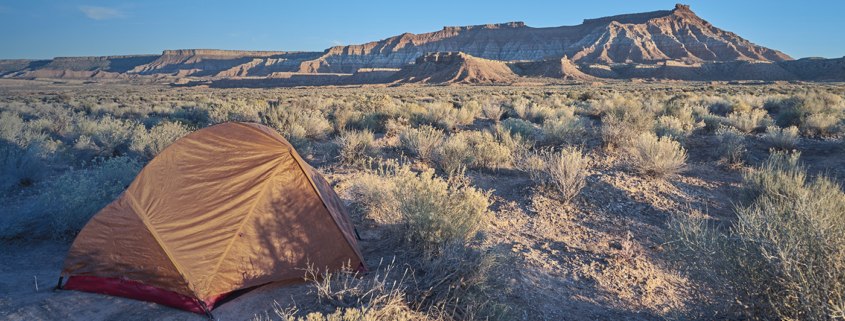Last November, Colorado voters sent a clear message by sweeping pro-conservation champions into office up and down the ballot: Coloradans value conservation.
In the face of a federal administration actively working to reverse protections for clean air, clean water, and a healthy climate, Coloradans called on our state leaders to fight back. Our calls were heard. Of the 598 bills state lawmakers introduced this legislative session, overhauls of Colorado’s energy policies and oil and gas regulations were among the General Assembly’s top priorities.
After years of the same story at Colorado’s legislature of big, bold policies to protect our future being shut down by anti-conservation legislators, 2019 held a lot of promise for Colorado. We were excited to work with our elected leaders to deliver on that promise by taking on some of our biggest campaigns ever.
Thanks to you, our lawmakers passed legislation to make Colorado a leader on climate action, prioritize the health and welfare of Colorado’s communities, and protect the lands and waterways that define our state.
Tackling Climate Change
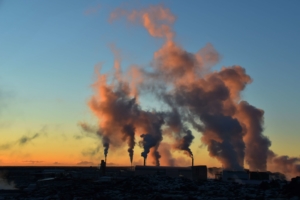
Dramatically reducing carbon pollution is key to Colorado swiftly acting on climate change—and the need for doing so has never been more clear. We put Colorado on a path towards a zero-carbon future by setting science-based carbon pollution reduction targets, decarbonizing our energy sector, and making it easier to buy and drive electric vehicles.
Numerous studies show we have a small window within which to prevent the most damaging impacts of climate change. The “Climate Action Plan” (House Bill 1261) will help us do our part to leave a healthy environment for future generations by creating a framework to reduce Colorado’s carbon pollution at least 90 percent by 2050, relative to 2005 levels. A bill to better collect climate change data (Senate Bill 96) will keep Colorado on track to meet this goal by requiring state regulators to collect data on carbon emissions and propose reduction strategies based on their findings.
Currently, electricity generation accounts for most of the carbon pollution produced in Colorado. A bill to reform the Public Utilities Commission (Senate Bill 236) will drastically reduce these emissions by directing all utilities in the state to generate more carbon-free electricity and consider the “social cost” of carbon when planning future energy projects. This cost—used to measure the dollar value of long-term damage caused by carbon pollution—will allow utilities to evaluate the significant monetary benefits of continuing to invest in clean energy projects. Another utilities-focused bill (House Bill 1313) will help Colorado continue to play a national leadership role on clean energy by setting a template for Colorado’s largest utility, Xcel Energy, as well as other utilities, to achieve their bold carbon reductions targets.
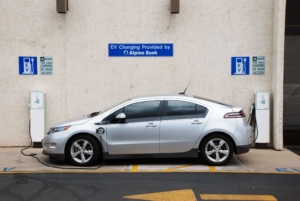
And lastly, by 2030, our transportation sector is expected to surpass electricity generation as the top carbon emitter in the state. That’s why transforming transportation is critical to combating climate change. We took a big step toward electrifying Colorado’s transportation fleet by passing bills to extend electric vehicle tax credits to 2025 (House Bill 1159) and expand electric vehicle infrastructure (Senate Bill 77) while defeating a bill to prohibit the adoption of Zero Emission Vehicle Standards (Senate Bill 53). These bills will keep Colorado the “best place in the country” to buy an electric vehicle as well as make low- and zero-emissions vehicles more affordable and more accessible to Coloradans.
Prioritizing the Health and Well-being of Coloradans
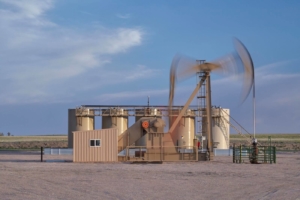
For too long, Colorado’s oil and gas laws and regulations had not kept pace with development, leaving our communities and environment to bear the consequences. This year we made significant gains in ensuring that when it comes to oil and gas drilling, health and safety come first. The oil and gas reform bill (Senate Bill 181) outlines a number of common-sense reforms to put Coloradans’ well being ahead of industry profits. The bill not only safeguards our communities by prioritizing public health and welfare, it will help combat carbon pollution by minimizing methane emissions. As a result, this bill will protect the health of our communities as Colorado moves beyond dirty fuels.
Progressing towards a clean energy future is critical to our way of life—but we must ensure a just and equitable transition along the way. Moving toward an inclusive economy built on clean energy will require more than just technological solutions, it will mean supporting workers and communities whose livelihoods are impacted by this shift.
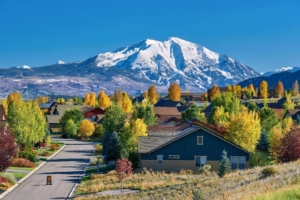
We helped to address the needs of workers, residents, and communities transitioning to a cleaner economy in a number of policies we worked to pass this session. The “Climate Action Plan” will help empower regulators to take bigger steps toward regulating air pollution in disproportionately impacted communities by specifically directing air quality experts to collaborate with a variety of different stakeholders, including frontline communities as they work to craft regulations. The “just transition” bill (House Bill 1314) will accelerate Colorado’s switch to cleaner electricity generation while benefiting local economies by providing grants, workforce training, and other re-employment programs to communities currently dependent on the coal industry. The Public Utilities Commission Reform bill will also help support communities making this switch by requiring energy companies to create a workforce transition plan when closing a coal-fired plant.
Protecting Our Lands and Waters
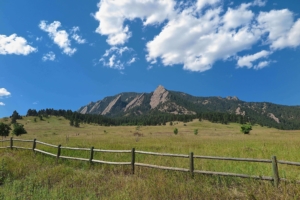
Climate change, pollution, and rapid population growth are putting significant strains on the lands and waterways that Coloradans depend on. This legislative session we made big moves to preserve Colorado’s wild places and cascading waters.
From mountain peaks to open grasslands, Colorado’s lands are central to our outdoor heritage and recreation economy. That’s why we supported a bill to update conservation easements (House Bill 1264). This measure will allow more Coloradans to protect the lands they love by extending and improving upon Colorado’s conservation easement program which already protects about 2.5 million acres across Colorado. It’s also why we worked to defeat a misguided wildfire mitigation bill (Senate Bill 37) which would have undone long-established, collaborative relationships between local governments and land managers to successfully address the threat of wildfires and maintain forest resiliency.
The water we use to drink, irrigate our crops, and sustain our communities is water that we share with our rivers, streams, and lakes. But severe drought and increasing water demands threaten to diminish both the quantity and quality of our water supply.
We passed two policies to help sustain healthy, flowing rivers: a mining reform bill (House Bill 1113) and a bill to fund Colorado’s Water Plan (House Bill 1327). The mining reform bill will preserve the quality of Colorado’s waterways by necessitating hard-rock mining companies to prove they can pay to treat polluted water prior to operating a new mine. This will ensure that Colorado’s water and communities are protected from the devastating environmental and economic impacts of hard-rock mining.
The Colorado Water Plan funding bill will maintain adequate flows in Colorado’s rivers and streams by creating a revenue source—through the legalization of sports betting—to fund the Colorado Water Plan, a roadmap to prevent statewide water shortfalls. If approved by voters, the bill will allocate 10 percent of proceeds—an estimated $10 million annually—towards water conservation as well as provide money to combat gambling addiction.
 These victories would not have been possible without you! Thousands of Conservation Colorado members across the state took action this legislative session to ensure a healthy Colorado for years to come.
These victories would not have been possible without you! Thousands of Conservation Colorado members across the state took action this legislative session to ensure a healthy Colorado for years to come.
Thank you—our members, donors, and supporters—for everything you did to make the environment a priority for legislators this year. By joining us and raising your voice on conservation issues, you have been a crucial part of this success.
This year was a year of tremendous progress. Now, we have a stronger-than-ever foundation upon which to build a better future for Colorado.
With your help, we can continue to grow our movement and be a national conservation leader.

